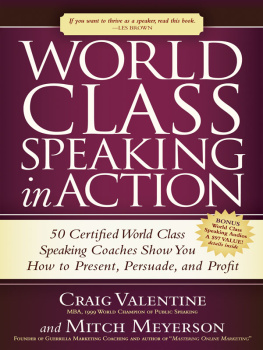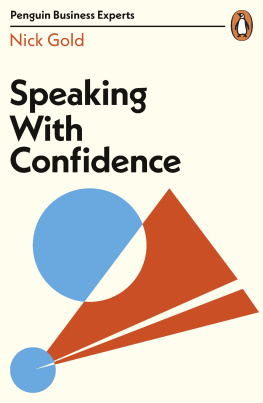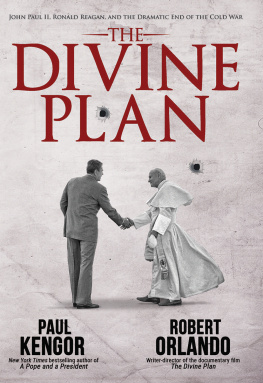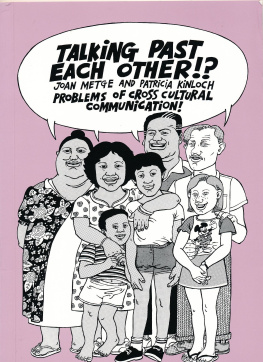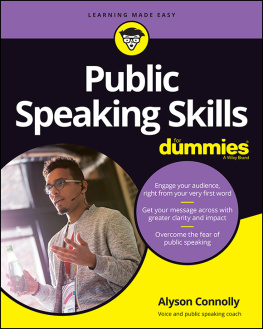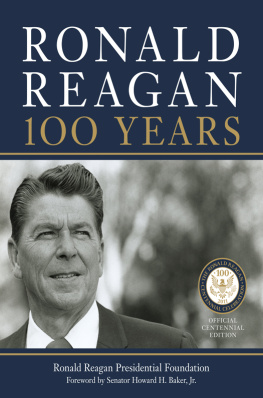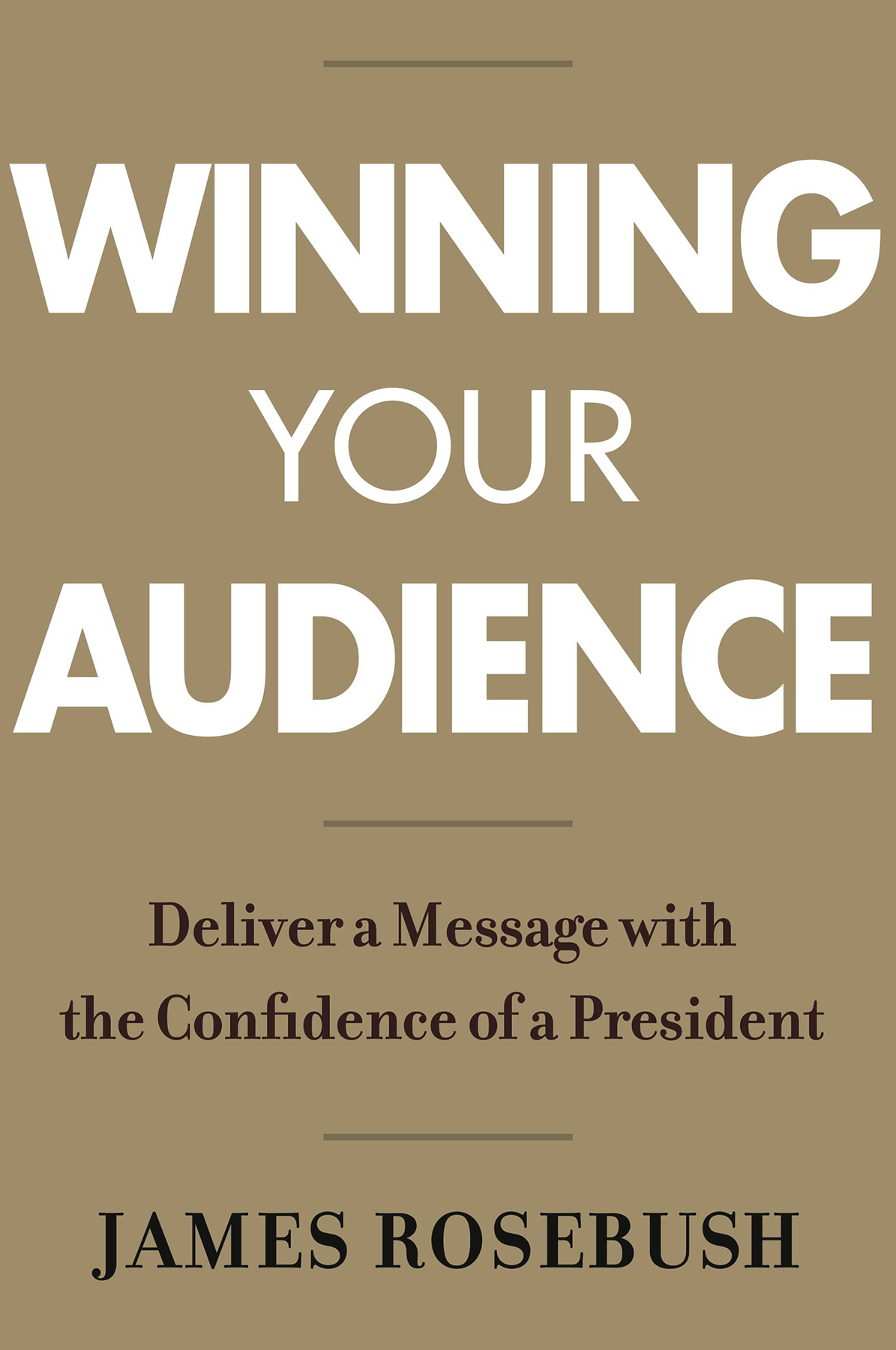Jacket copyright 2020 by Hachette Book Group, Inc.
Hachette Book Group supports the right to free expression and the value of copyright. The purpose of copyright is to encourage writers and artists to produce the creative works that enrich our culture.
The scanning, uploading, and distribution of this book without permission is a theft of the authors intellectual property. If you would like permission to use material from the book (other than for review purposes), please contact permissions@hbgusa.com. Thank you for your support of the authors rights.
Center Street is a division of Hachette Book Group, Inc. The Center Street name and logo are trademarks of Hachette Book Group, Inc.
The publisher is not responsible for websites (or their content) that are not owned by the publisher.
Public speaking is the most common and requisite skill for which we receive the least amount of training.
I wrote this book for you. As you read and study this book and practice its principles, you will become an accomplished speaker and win your audience. It is likely that you are a part of the 75 percent of the global population who are afraid of speaking in public. This includes princes and prime ministers, presidents and preachers. It also includes students, salespeople, parents, managers, philanthropists, factory workers, and just about anyone who is required or chooses to communicate with other people. Prime Minister Margaret Thatcher, one of the most composed, powerful, and self-assured world leaders of all time, told me once that at times even she was afraid on the podium. To imagine that a woman with all that worldly experience could be fearful of speaking in public explains why the humblest among us also grows nervous at the prospect of being called upon to stand and deliver in front of an audience.
For many of us this means that deploying even the most basic communication skills, like making a phone call, can be challenging. Not surprisingly, there is a name for this fear and affliction: glossophobia. This book is designed to help you conquer fear and free your ego of the constraints that may keep you on the sidelines and from having success speaking in public. As you read this book, learn from its examples, and adopt and practice the critical skills you learn, you will find yourself growing in self-confidence and success. There is nothing more personally affirming than gaining dominion in public speaking. It will affect all aspects of your life, because learning to speak effectively rests on gaining new levels of self-knowledge and personal confidence. Its a game changer. I know this is true because it is how I started to unleash my own abilities. Let me tell you the story.
A few decades ago, as I walked the streets of Moscow in frigid midwinter, a perma-haze of low gray clouds dimming the atmosphere, I was aware that I was neither alone nor invisible. The intelligence agents assigned to trail me, admittedly a very low-value target, were not the elegant and shadowy figures I had seen in spy movies any more than the fat old women posted inside the hotels, Babas as they were called, were grandmotherly. These worn-out elderly hosts always collected my room key when I went out and held it until I returned for a nights sleep at the formerly grand, and by then faded, National Hotela five-minute walk from Red Square and Lenins tomb. They said that they pocketed my keys so they could clean the room while I was out.
As I walked the streets, in between meetings with government officials, it was damp and freezing cold and yet it was hard to stop watching the mesmerizingly efficient mechanized removal of ever-present snow being cleared from the broad boulevards and then dumped into the Moscow River. I imagined this to be a massive socialist snow-removing operation far different than the haphazard snow shoveling near the Flint River, in the industrial Midwestern town where I was raised, which is now known more for its contaminated public water supply than its storied past as a major automotive manufacturing hub.
As a Rotary International Scholar, I had been invited to the Soviet Union at age twenty-one to conduct face-to-face meetings with ranking government officials who were three times my age and four times my girth. In America, I was just a budding philanthropic executive, and it took all my self-confidence to pretend I was talking to my equals and to hold conversations of substance through ever-present interpreters. The images of numerous Moscow meetings in massive communist office blocks, and in Leningrads more traditional historic buildings where our meetings were held, have never left me. While the meetings were all planned and orchestrated for me, I was left on my own to conduct them. Communication was challenging but ultimately informative and rewarding.
In the evenings I found cultural events and museums to visit. More than once I risked being noticed by the police when I agreed to tutor strangers who begged me to teach them English. I used a few books I had stowed away in my suitcase to train them, which was a violation of my visa conditions. I am not sure I understood the potential cost of my youthful indiscretions, and I was certain to have warranted the creation of a thin surveillance dossier of some kind. The next time I would negotiate with Soviet officials came a decade later when I was working for President Ronald Reagan. These meetings included their own measure of intrigue.
After three weeks of meetings in Moscow and Leningrad on this first trip, I boarded a Russian Aeroflot 747 jet bound for New York, complete with farmers holding their highly excited caged chickens as well as cold cuts and vodkawhich they shared liberally with their fellow travelers. Now I faced something more frightening than my meetings with the portly communists I had become acquainted with on my trip, or the tinge of terror I felt flying across the Atlantic on a rickety plane with boisterous Russians.
Once I arrived back in the US from the Soviet Union, it was my responsibility to give a speech to the Rotary Club about my experience. The good news was that my dad was a Dale Carnegie speech instructor, and I had been his student. The bad news was that he would be in the audience to judge, and possibly inhibit, my performance. This would not be the first time I would suffer from his severe critique of my speaking skills. He was the master teacher, and I was less than a master student. I had learned and practiced the basic principles of the then-famous Dale Carnegie trainingthinking and imagining key points, tricks of memorization, dramatic storytelling, and more. Contemplating the task ahead, I thought about the perils of not presenting well.
Making every effort to turn fear into positive energy, I began to realize just how important storytelling and communicating are to history, scientific discoveries, and human progress. I also began to imagine, for the first time, the power of my own voice and its potential to educate and enlighten the audience about conditions in Soviet Russia. After all, this was no ordinary tourist trip. For once I knew I had stories to tell, and they were plentiful, colorful, and controversial. This gave me the courage to surmount my insecurities and to relate compelling and picturesque tales in a speech that received an enthusiastic response from the audienceincluding from my dad.


